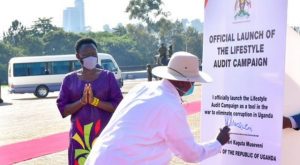The fight against corruption and its various manifestations in Uganda isn’t solely the obligation and responsibility of the state but rather a joint and shared responsibility between government institutions and the citizenry.
Article 17 (1) (I) of the Republic of Uganda’s 1995 Constitution (as amended) mandates citizens to combat corruption and misuse or wasting of public property within Uganda’s territorial jurisdiction.
The establishment of entities such as the Inspectorate of Government, the Directorate of Public Prosecution, State House Anti-Corruption Unit, and others demonstrates the government’s determination to eradicate corruption in Uganda.
President Museveni has on several occasions publicly proclaimed his commitment to fight corruption, urging Ugandans to work with various government agencies in exposing the dishonest.
However, in order for all of these activities to succeed, the populace must be willing to resist corruption. The entire population should be sensitized to the dangers and the importance of combating corruption in the country.
Recently, when Ms Agnes Nandutu, the State Minister for Karamoja Affairs, was arrested and later charged by the Anti-Corruption Court for diverting iron sheets meant for the Karachunas (youth warriors), a section of residents, including local council leaders from Bududa district, protested, demanding the release of the accused (Nandutu), claiming her innocence.
Ugandans must embrace the concept of patriotism and stop viewing national issues in terms of regions, tribes, ethnicity, religion, and friendship, because glorifying and enabling the corrupt to steal more is rendering government’s effort to combat corruption meaningless.
When state resources are lost due to corruption, it affects Uganda as a whole, not just one tribe or religion. As a result, the general public must jointly reject corruption by working with anti-corruption institutions through sharing the available information on corruption and the corrupt.

